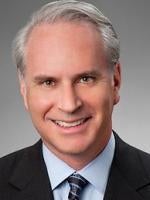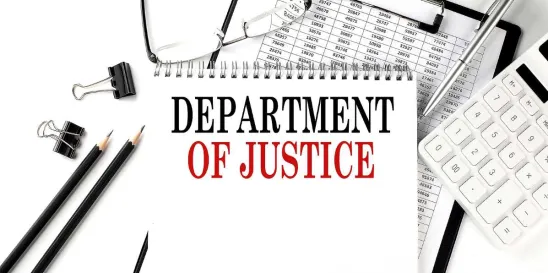After conducting a thorough and privileged internal investigation, it becomes evident that your Company has overcharged the government over $50 million, and that the fraud was directed by a high-level manager. What do you do next? After the recent HealthSun declination, you should self-disclose under the DOJ’s Voluntary Self-Disclosure policy, in conjunction with other acts of remediation!
The Department of Justice’s (DOJ) decision to decline prosecution of HealthSun Health Plans for Medicare Advantage fraud showcases the major benefits of timely self-disclosure under the new Voluntary Self-Disclosure policy. The Florida-based health insurance company voluntarily disclosed a serious and long-running fraudulent scheme operating within the business which resulted in the Department of Health and Human Services’ Centers for Medicare and Medicaid Services (CMS) overpaying HealthSun millions of dollars over five years. Despite these serious allegations, on October 25, 2023, the DOJ sent a declination to HealthSun’s legal counsel, specifically noting the company’s timely disclosure and proactive cooperation in the matter. Outcomes like this demonstrate the importance of robust compliance programs and internal investigations, as well as self-disclosure of any potential criminal liabilities for companies in every part of the country.
The Government’s investigation, conducted with significant cooperation from HealthSun, found evidence that from 2015 until early 2020, HealthSun’s former Director of Medicare Risk Adjustment Analytics orchestrated a scheme to fraudulently increase payments from CMS for its Medicare Advantage enrollees. HealthSun received approximately $53 million in overpayments for falsified submissions of chronic illness diagnoses for those in its Medicare Advantage Plan. On October 26, 2023, the DOJ charged the former Director individually with one count of conspiracy to commit healthcare fraud, two counts of wire fraud, and three counts of major fraud against the United States. HealthSun on the other hand, received a full declination to prosecute and was not required to hire a compliance monitor.
HealthSun avoided criminal liability as an organization by complying completely with the DOJ’s Voluntary Self-Disclosure Policy. As of February 2023, this policy set a nationwide standard in all U.S. Attorney’s Offices to provide companies with incentives to voluntarily self-disclose misconduct. All Offices are to adhere to the principles that: 1) absent aggravating factors, the government will not seek a guilty plea where a corporation has voluntarily self-disclosed, fully cooperated and timely remediated the criminal conduct, and 2) in those instances, the government will not impose a compliance monitor if the corporation shows it has implemented an effective compliance program. Here, the Government put its money where its mouth is and set a great example for future corporate declinations.
This nationwide standard encouraging voluntary disclosures gives great incentives for companies to enhance their compliance and internal investigation programs. This is all the more reason to robustly investigate all potential criminal liability. Indeed, ignoring indications of criminal behavior opens companies up to potentially huge liabilities that are largely mitigated if they self-disclose. Companies all over the country can expect treatment similar to that of HealthSun from their local U.S. Attorney’s Offices if they disclose possible violations of law early and cooperate.
HealthSun’s declination did require that it pay back the approximately $53 million that the company wrongfully collected due to the alleged fraud. But, if the DOJ had discovered the fraud without the help of HealthSun (through a whistle-blower, for example), it undoubtedly would have faced criminal charges, many additional millions in fines, and treble damages for violations of the False Claims Act. For many, this can be the difference between continued operations and bankruptcy.
The importance of self-disclosures goes hand-in-hand with the need for robust compliance programs and proactive internal investigations. The benefits of voluntary self-disclosure are not available if a company does not first discover the potential criminal activity. Situations like HealthSun’s emphasize the risk a company is taking when it does not fully investigate suspicious activity. The risks posed by DOJ investigations of unreported corporate misconduct vastly outweigh the costs of conducting an internal investigation and self-reporting any findings.
The DOJ’s decision to decline prosecution of HealthSun is the most recent example of its new commitment to a standardized, nationwide Voluntary Self-disclosure policy for corporate crime. The DOJ particularly emphasized the importance of HealthSun’s timely disclosure, full cooperation with the investigation, and immediate remediations to the internal controls in its Medicare Advantage program. Under the current DOJ policy, it is in every company’s best interest to fully investigate any indication of corporate criminal activity and disclose any findings to the DOJ as soon as possible. With full declinations of prosecution at play, the decision to investigate and self-disclose could be the one that saves the company.




 />i
/>i
